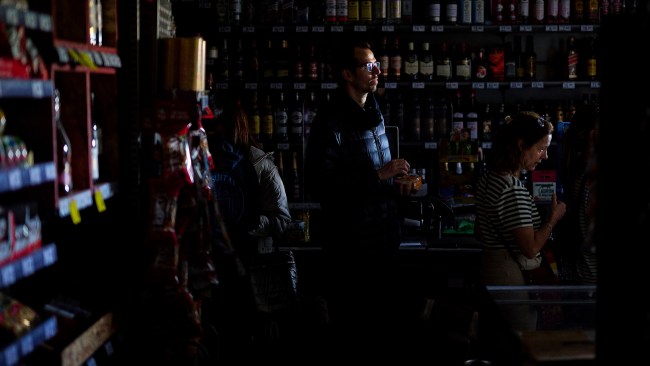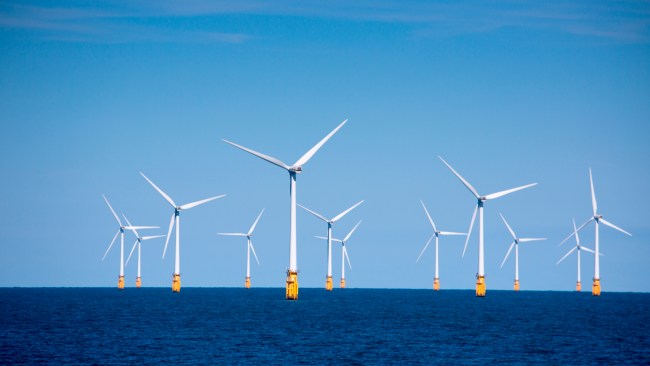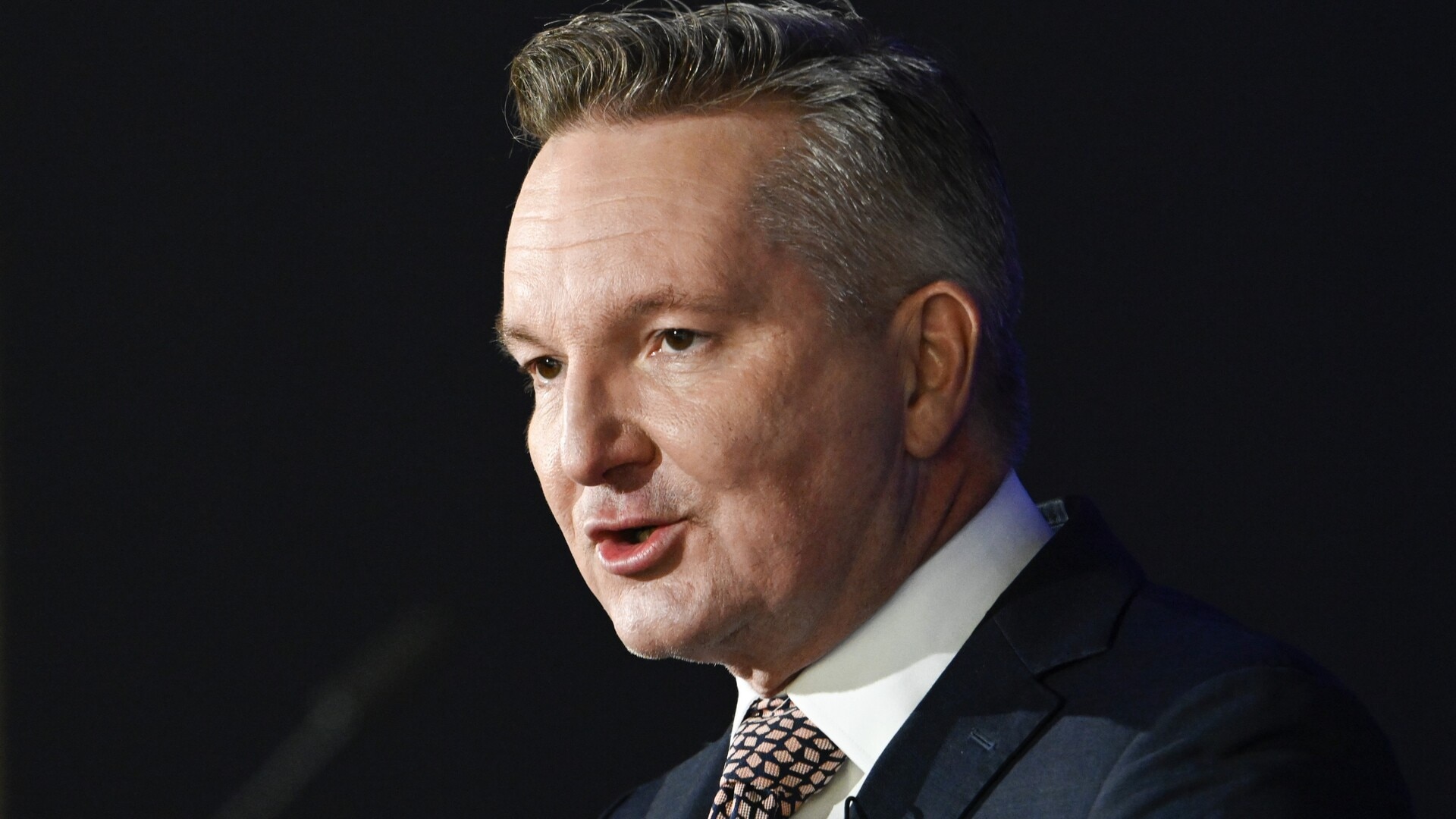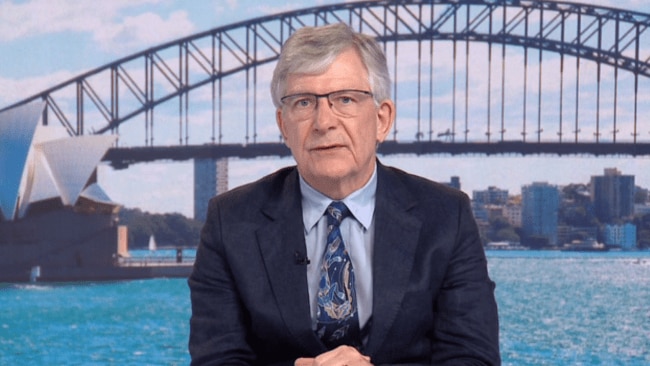‘We’re in deep danger’: Nuclear expert fears Australia heading into net zero ‘failure’
Nuclear expert Adrian Paterson has raised concerns "an unstable wind plus solar grid" could lead to major blackouts, such as those seen in Spain and Portugal, occurring in Australia
The European nations are still working to understand what prompted the almost complete loss of power on Monday, with millions counting the cost of the chaotic disruption.
Amid speculation over what caused the blackout, Redeia, which owns Spanish grid operator Red Eléctrica de España, warned in February in its annual report that it faced a risk of "disconnections due to the high penetration of renewables without the technical capacities necessary for an adequate response in the face of disturbances".
Speaking to Sky News' Andrew Bolt, Mr Paterson argued Australia should be wary about the Albanese government's renewables push in light of the blackouts.

“We are on a road to failure. There's no doubt in my mind. We saw that in Spain just in the last 24 hours, what happens when an unstable wind plus solar grid runs into a problem of having too much,” the former CEO of the Australian Nuclear Science and Technology Organisation said.
“The whole thing falls over catastrophically because there is no way that you can take dilute sources of power, individual wind turbines, individual panels, and add them up to the grid that we have today that makes our economy work.”
Mr Paterson explained the major problem facing renewables was the lack of stable generation, with output fluctuating in line with prevailing conditions.
He added the issue was similar to one commonly faced by sailors.

“If you've ever sailed a sailing boat on Sydney Harbour or a little dinghy in a dam, you will know that when the wind is not blowing, you cannot make that boat move forward and when the winds are not blowing and it is not turning the blades of those turbines, no electricity is being produced,” Mr Paterson said.
“So, if you have a four-day east coast low where there's no wind, where there is low cloud and the sunlight is not getting through to the panels, how are we going to get electricity?”
Under the Albanese government, Australia has accelerated the rollout of renewable energy sources as part of Labor's ambitious goal of reducing emissions to 43 per cent of 2005 levels by 2030.
Over the last decade, the share of electricity generated by renewable energy in Australia has increased significantly, rising from around 10.5 per cent in 2010 to 29 per cent in 2021.

Mr Paterson said he feared Australia was entering “dangerous” territory in terms of the changes occurring in the country’s power grid.
“It is so dangerous what is happening to our grid, that it is worth having the debate in public between experts so that the experts can solve this problem, because every expert who is running the grid that we are trying to run in the way that we're trying to run it knows that it cannot be done,” he said.
“We saw it with Spain, and we will see it, in fact, we were already seeing it in Australia.

“The prices are going up in unpredictable ways. If the price was meant to be coming down, why is it going up? If it was meant be minus 275, why is plus 2750?”
The Albanese government had previously promised it would reduce household power bills by $275 by 2025.
According to the Australian Energy Market Operator the shift towards renewables is growing in Australia through the continual closure of coal plants.
“Coal retirements are occurring faster than announced dates, and may occur even faster than these forecasts,” the agency said in a recent roadmap for the national grid.
“Ownership has become less attractive, with higher operating costs, reduced fuel security, high maintenance costs and greater competition from renewable energy in the wholesale market.”
Mr Paterson claimed the path toward net zero would put Australia in "deep danger" as he issued a plea for the government to speak with nuclear experts
“It is deeply, deeply dangerous to have these people looking after our grid and it's going to get worse before it gets better because there's no sign that the signals are getting through to the senior bureaucrats, or to the politicians or to people who advise the people in small rooms,” he said.
“I'm really, really worried. Nobody's picked up the phone to talk to me, I'm quite happy to have small room discussions.
“I know this world. Nobody is picking up the phone. We're in deep danger.”
Add your comment to this story
To join the conversation, please log in. Don't have an account? Register
Join the conversation, you are commenting as Logout
免责声明:投资有风险,本文并非投资建议,以上内容不应被视为任何金融产品的购买或出售要约、建议或邀请,作者或其他用户的任何相关讨论、评论或帖子也不应被视为此类内容。本文仅供一般参考,不考虑您的个人投资目标、财务状况或需求。TTM对信息的准确性和完整性不承担任何责任或保证,投资者应自行研究并在投资前寻求专业建议。
热议股票
- 1
- 2
- 3
- 4
- 5
- 6
- 7
- 8
- 9
- 10